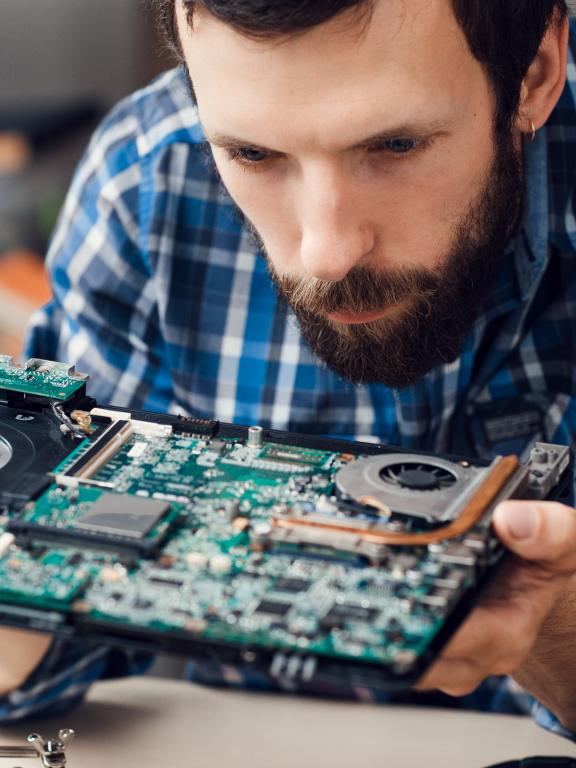Our Electronics Engineering Technology program will provide you with the skills necessary to analyze and troubleshoot electronic systems and repair home appliances. You’ll gain knowledge and hands-on experience with topics such as motors and controls, circuit analysis, industrial safety, refrigeration, residential wiring, digital electronics, and heating, ventilation, air conditioning, and refrigeration systems.
This is a diploma program and requires fewer credits and less time to complete than a degree program. If you’re looking for an even quicker option, the certificate program may be for you.
The Electronics Engineering program also offers degree and multiple certificate options.
Skills You’ll Learn
The Electronics Engineering Technology program is focused on job-related skills in the following areas:
- Safely and effectively using common tools and operating test equipment found in the electronic field
- Demonstrating a working knowledge of the principles and concepts associated with electronic circuits and systems and the proper utilization of equipment
- Reading, interpreting, and employing electronic schematics (both component and functional block diagrams) in the installation, maintenance, troubleshooting, and repair of electronic circuits and systems
- Performing preventive maintenance, troubleshoot, and repair a variety of electronic circuits and systems
Career Opportunities
There are many employment opportunities for Electronics Engineering Technology graduates, including:
- Bench technician
- Electronic tester
- Electronic systems integrator
- Electronics engineering technicians
- Field service technician
- Maintenance technician
- Production control technician
Plan of Study
The recommended course sequence for this program and a complete list of related classes are available in the Academic Catalog. Click the button below to view a copy of this plan of study, which is also available as a PDF.
